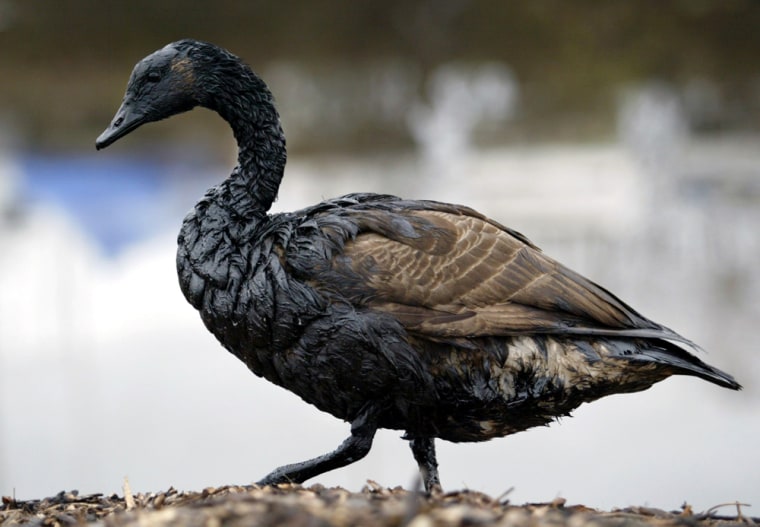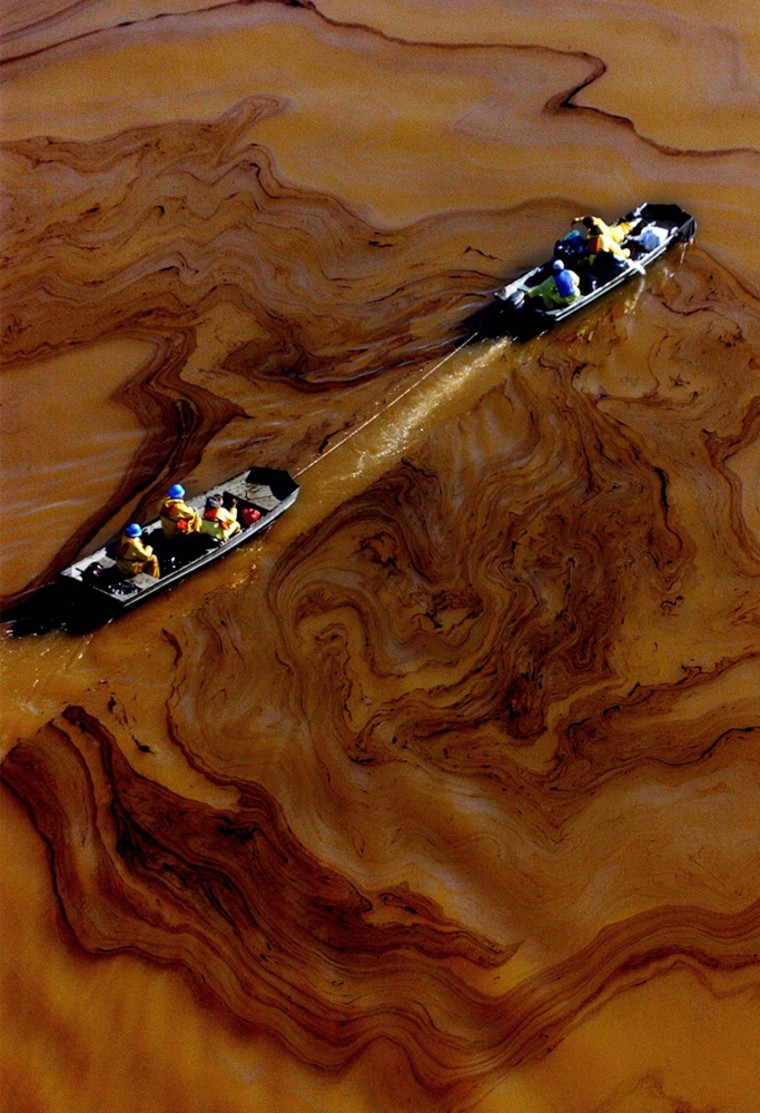The Coast Guard said Tuesday that investigators believe much more oil spilled from a ruptured tanker in the Delaware River near Philadelphia than the 30,000 gallons initially reported.
Coast Guard Lt. Buddy Dye said 473,500 gallons from the tanker Athos I are unaccounted for, but called a leak of that size a “worst-case scenario.”
The worst oil spill in the river’s history occurred in 1989, when a tanker ran aground near Claymont, Del., spilling 300,000 gallons.
Dye said it could take four or five days for investigators to probe the vessel to determine how much oil actually escaped through a gash discovered Saturday, a day after the spill began. The Coast Guard said the cause still was unclear.
New Jersey Environmental Protection Commissioner Bradley M. Campbell said that while the oily muck was concentrated within a few miles of Paulsboro, across the river from Philadelphia International Airport, an oily sheen could be seen along about 40 miles of the river.

The Army Corps of Engineers completed a sonar survey without finding anything threatening to a tanker, Coast Guard Chief Petty Officer Patrick Montgomery said. He also said there was no evidence of a navigation error that might have led the Athos into shallow waters or caused it to bump against something on shore.
In some spots, the odor of the oil was powerful; elsewhere, the river smelled like the lemon-scented detergent that some 600 workers are using for the cleanup.
The Philadelphia region is among the nation’s largest port areas. By Tuesday, after days of being halted, some cargo ships were being allowed to traverse oil-laden areas.
